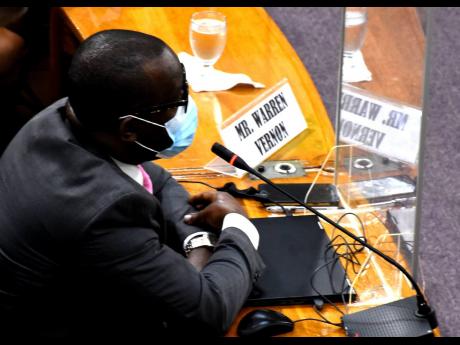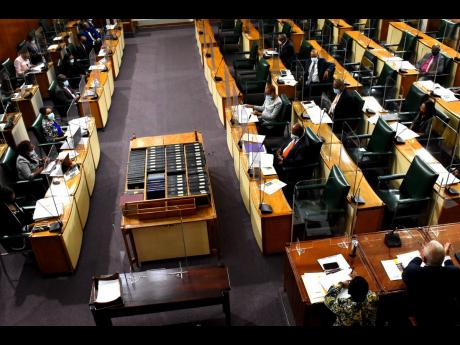Digital birth certificates infrastructure 90 per cent complete
The implementation of infrastructure that will facilitate the production of digital birth certificates for Jamaicans is now 90 per cent complete.
This was disclosed by programme director for the National Identification System (NIDS), Warren Vernon, who said the National Public Key Infrastructure (NPKI) project is expected to be completed by March, following the conclusion of certain processes.
“There are some public registration that we need to do. We have to certify it, we have to get those NPKI auditors in and there is a process to go through,” he said.
Vernon was responding to questions posed by member of the Joint Select Committee of Parliament on NIDS legislation, Julian Robinson, during its meeting on Tuesday.
He informed that with the NPKI in place, it is also expected that by March “we’ll also be in a position to launch phase one of the project, which is to allow the public to go online, request a copy of your birth certificate, a digital copy which you take anywhere in the world, and they can verify it [and] tie it back to the security framework for the NPKI”.
The NPKI is part of the non-NIDS aspect of the Government’s impending NIDS Programme, which seeks to create a unique, reliable and secure way of verifying an individual’s identity.
The NPKI project aims to make Jamaica a more digital society in which there is ubiquitous use of information and information and communications technology (ICT) in all spheres, such as home, work, school and recreation.
This project will enable trusted electronic identities for people, services and things, and make it possible to implement strong authentication, data encryption and digital signatures, based on a certifying authority.
“We are doing work also with the Passport, Immigration and Citizenship Agency (PICA) to get them ready for [rolling out the]e-passport. We are doing a lot of upgrades – looking at processes and optimising those processes – right across government because it is important for us to prepare government for the adoption of NIDS,” he said.
He noted that the NIDS team is also currently working with Tax Administration Jamaica, the Registrar General’s Department (RGD), Jamaica Post, e-Gov, and a number of other government entities, including the Ministry of Education, Youth and Information, to digitise their services.
“[We are looking at their] business processes [to see] how we can eliminate the bureaucratic processes to transform those processes into a digital way,” he said.
Providing further updates on the NIDS implementation, Vernon informed that the team has defined all of the business processes for the NIDS programme, defined all the requirements for the system, and also for the national identification card.
“We are at a stage now where we are waiting on the legislative framework so that … any new recommendations that will come out of this process, we can tweak. But if we are able to get the legal framework in place by, let’s say April/May, we should be in position by September 2021 to personalise or to create the first national identification card,” he said, adding that the plan is to then start piloting the programme.
In December last year, Prime Minister Andrew Holness tabled the National Identification and Registration Act 2020, which makes provisions for a voluntary and secure national identification system for Jamaica.
“The bill will serve as the legal basis for the establishment of a robust, efficient and effective National Identification System, underpinned by a legal and regulatory framework that supports safe, secure and reliable verification of identity information for citizens of Jamaica and persons ordinarily resident in Jamaica,” Holness said then.
“It will allow for the strengthening of identity security, reduction of identity fraud and the simplification of bureaucracy,” he said.
Subsequent to the Supreme Court ruling in April 2019 on the National Identification and Registration Act, 2017, the Government revised the 2016 National Identification and Registration Policy and developed a new bill in compliance with the ruling.
The policy now provides for a voluntary NIDS that will provide a secure, reliable and convenient means of identification for citizens and persons ordinarily resident in Jamaica, and the administrative structure, powers and functions that are necessary for the establishment and maintenance of such a system.
It also provides for a robust and coherent legislative framework to deal with the collection, processing, storage, retention, usage, and protection of personal data; the protocols, procedures, and systems for identity verification, monitoring and compliance; and an independent oversight body.


